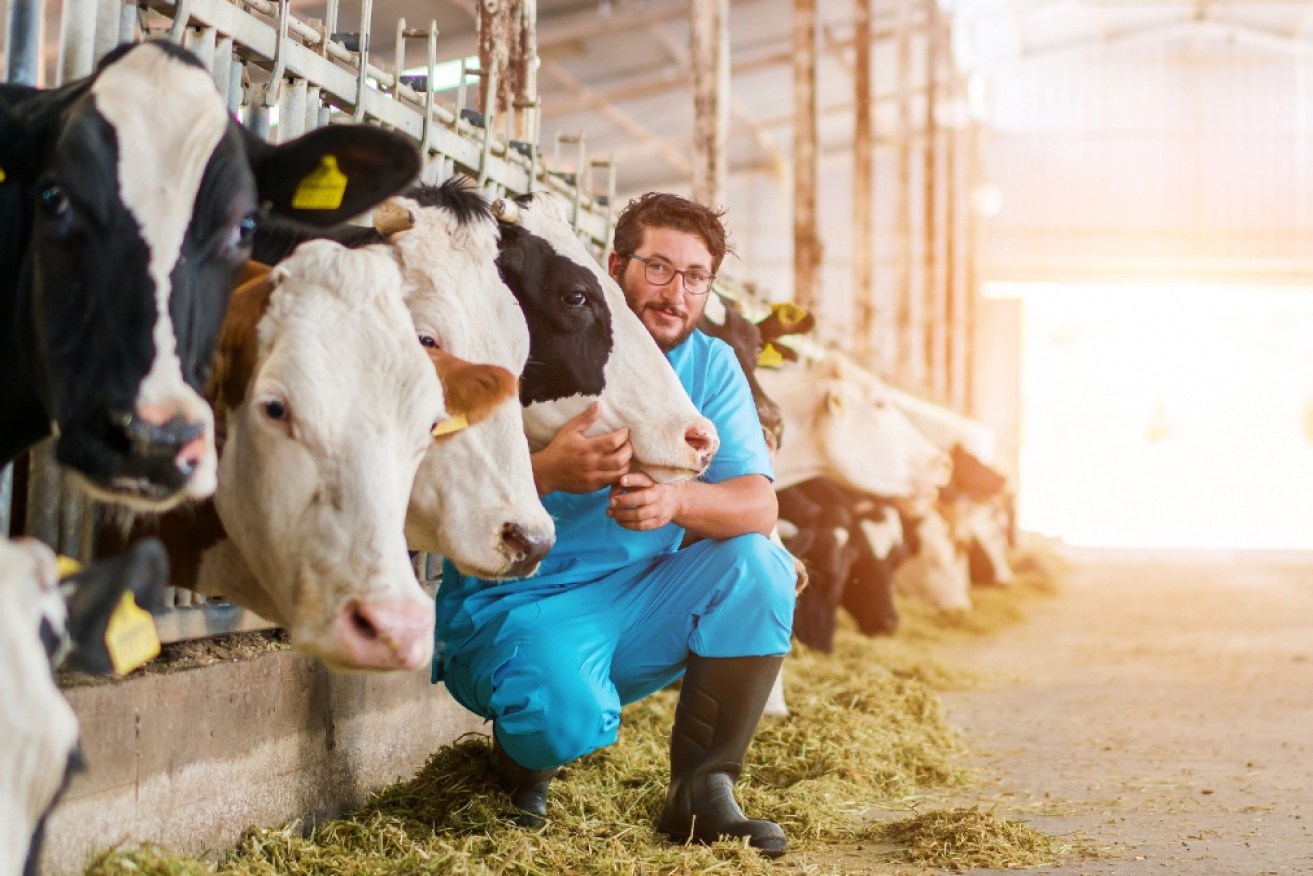Vets are struggling with mental health and looking for an out


Australian vets are struggling with poor pay, burnout and mental health. Photo: Getty
It might be a dream job for children everywhere, but being a veterinarian isn’t all it’s cracked up to be.
A new survey from Professionals Australia, a registered union that represents vets, revealed about 30 per cent were looking to leave the industry in the next five years.
More than 500 vets took part in the survey, and most were women.
Of the respondents, 90 per cent worked in private practices.
Some 10 per cent said they were actively looking to leave the industry altogether.
About 38 per cent of respondents said they were planning to stay in the industry for five to 15 years, while 34 per cent were in it for the long haul.
In the foreword of the survey report, Professionals Australia CEO Jill McCabe acknowledged the idea of working as a vet is appealing, but many around Australia are not really benefiting.
“While being a veterinarian is perceived as an attractive and rewarding career, the reality of a vet’s working life can be vastly different – characterised by long working hours, poor remuneration, stress and dissatisfaction,” she said.
The demand for veterinary services increased during the pandemic and in turn, vets were put under pressure when they were already “stretched to the limit”, she said.
High suicide rate
The report stated veterinarians invested in their careers and are committed to their jobs.
However, every day vets are faced with “dangerous work conditions”; are expected to work long hours; receive poor remuneration, and unpaid overtime.
Vets are often working in an understaffed workplace, in a high-stress situation and are left to deal with frequent customer abuse.
“All of these factors are having a devastating impact, with veterinarians four times more likely to die by suicide compared to the general population,” the report said.
Respondents said they felt as though there was little or no support for them when they experienced poor mental health due to working conditions.
One of the respondents said everyone they know in the industry is “burnt out”.
“I am disheartened by the levels of burnout, poor mental health, and the number of vets leaving the profession,” another respondent said.
“We became vets to help animals and are subjected to emotional stress and abuse from the people whose animals we are trying to help. Workplace bullying is rife. And our salaries are poor in comparison to other professionals.”
Another respondent said while they are still passionate about their job, which they give their all, they are very unhappy and disheartened.

Working conditions make many vets want to leave the industry. Photo: Getty
Unpaid overtime
The vast majority of vets worked less than 40 hours a week, however, 13 per cent of respondents worked between 46 hours or 50-plus hours a week.
About 60 per cent of vets typically worked 10 hours a day, however 58 per cent said they worked between one to five hours of overtime per week.
Some 20 per cent worked between five to 15 hours of overtime a week.
Despite this, only 44 per cent said they were consistently compensated for the overtime they worked.
“I wanted to work in clinical practice, but working 40 hours a week with five to 10 hours [of] unpaid overtime, 15-minute consults, corporate pressure and only taking home $900 a week, it was unsustainable,” one veterinarian said.
Just under 40 per cent of vets were either dissatisfied or very dissatisfied by the money they make.
A majority of respondents said they are personally satisfied with their jobs, however, they are not satisfied with the industry, pointing to being overworked and burnt out, with poor renumeration driving dissatisfaction.
Of the 30 per cent of vets who indicated they had plans to leave the industry within five years, 66 per cent cited poor working conditions and poor remuneration as reasons for doing so.
Vets said a lack of a good work-life balance and a desire to change their careers were also driving factors.
- Lifeline 13 11 14
- beyondblue 1300 22 4636








